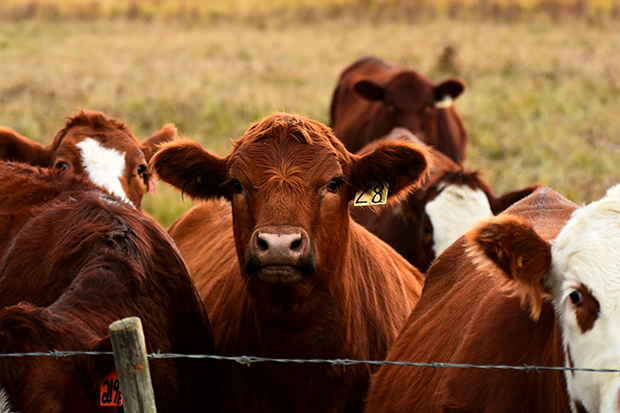
Beef cow with atypical bovine spongiform encephalopathy found in South Carolina
A beef cow at a slaughter plant in South Carolina tested positive for an atypical case of bovine spongiform encephalopathy (BSE), according to a May 19 announcement from the U.S. Department of Agriculture (USDA).

The approximately 5-year-old beef cow never entered slaughter channels and did not present a risk to the food supply or to human health in the U.S., according to the agency.
"Given the United States' negligible risk status for BSE, we do not expect any trade impacts as a result of this finding," the announcement stated.
This is the nation's seventh detection of BSE. Of the six previous U.S. cases, the first, in 2003, was a case of classical BSE in a cow imported from Canada; the rest have been atypical (H- or L-type) BSE.
The beef cow, associated with a herd in Tennessee, showed symptoms of the disease after arriving at the plant and was euthanized, according to a press release from Clemson University. Samples were sent to a National Animal Health Laboratory Network (NAHLN) laboratory for testing and returned suspect for BSE. The samples were then sent to USDA Animal and Plant Health Inspection Service's (APHIS) National Veterinary Services Laboratories (NVSL) where they were confirmed positive for atypical L-type BSE.
"This was an isolated case that occurred," said South Carolina State Veterinarian, Dr. Michael Neault, in the release. "The United States has a robust system of safeguards designed to protect human and animal health against BSE. Those safeguards were successful and prevented entry into the public and animal food supply systems."
APHIS and veterinary officials in South Carolina and Tennessee continue to investigate.
BSE is not contagious and exists in two types — classical and atypical. Classical BSE is the form that occurred primarily in the United Kingdom, beginning in the late 1980s, and it has been linked to variant Creutzfeldt-Jakob disease (vCJD) in people. The primary source of infection for classical BSE is feed contaminated with the infectious prion agent, such as meat-and-bone meal containing protein derived from rendered infected cattle. Atypical BSE generally occurs in older cattle and seems to arise rarely and spontaneously in all cattle populations.
The World Organization for Animal Health (WOAH) recognizes the United States as negligible risk for BSE. As noted in the WOAH guidelines for determining this status, atypical BSE cases do not impact official BSE risk status recognition as this form of the disease is believed to occur spontaneously in all cattle populations at a very low rate.